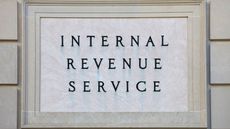Arkansas State Tax Guide
State tax rates and rules for income, sales, property, fuel, cigarette, and other taxes that impact Arkansas residents.
- (opens in new tab)
- (opens in new tab)
- (opens in new tab)
- Newsletter sign up Newsletter

Bottom Line
Middle-Class Families: Mixed (Go to the Kiplinger Tax Map for Middle-Class Families)
Retirees: Tax-Friendly (Go to the Kiplinger Tax Map for Retirees)
Arkansas is a tax-friendly state for retirees, but it's not always very friendly for other people. Sales taxes in Arkansas — which are levied on both food and clothing — are rather high. According to the Tax Foundation, Arkansas has the third-highest average combined state and local sales tax rate in the nation.

Sign up for Kiplinger’s Free E-Newsletters
Profit and prosper with the best of expert advice on investing, taxes, retirement, personal finance and more - straight to your e-mail.
Profit and prosper with the best of expert advice - straight to your e-mail.
Income taxes are generally above average, too. They're also a bit more complicated in Arkansas, since the state uses different rate schedules depending on your income. But there's some recent relief for high earners: Starting with the 2022 tax year, the top rate dropped from 5.9% to 4.9%.
On the other hand, Arkansas's property taxes are among the lowest in the nation, and there are no estate or inheritance taxes when you die.
Arkansas Income Taxes
Arkansas Income Tax Range
Low: 2% (on taxable income from $5,000 to $9,999 for taxpayers with net income of $84,500 or less, and on the first $4,300 of net income for taxpayers with net income over $84,500)
High: 4.9% (on taxable income from $23,600 to $84,500 for taxpayers with net income of $84,500 or less, and on taxable income over $8,500 for taxpayers with net income over $84,500)
Arkansas Taxation of Social Security Benefits
Social Security benefits are not taxed by the state.
Arkansas Tax Breaks for Other Retirement Income
Up to $6,000 of income from private or government employer sponsored retirement plans is exempt. Distributions from traditional IRAs also qualify for the $6,000 exemption if the taxpayer is at least 59½ years old.
Military pensions and Railroad Retirement benefits are fully exempt.
Taxpayers age 65 and older who don't claim a retirement income exemption are eligible for an additional $29 tax credit (2021 amount).
Retired law enforcement officers working on cold cases can claim an income tax credit of up to $3,500.
Arkansas Sales Tax
6.5% state levy. Localities can add as much as 6.125%, and the average combined rate is 9.47%, according to the Tax Foundation.
- Groceries: Taxable (0.125% state rate; additional local taxes may apply)
- Clothing: Taxable
- Motor Vehicles: Taxable (6.5% state rate, or 7% in Texarkana, on purchase price of $4,000 or greater; 3.5% state rate on used motor vehicles priced from $4,000 to $10,000)
- Prescription Drugs: Exempt
Arkansas Real Property Taxes
In Arkansas, the median property tax rate is $572 per $100,000 of assessed home value.
Arkansas Property Tax Breaks for Retirees
The taxable assessed value of homes of residents 65 or older, or those who are disabled, can be frozen at the previous year's value unless improvements are made or the property is sold. The taxable value of a homestead property can only increase 5% per year until the property reaches full assessed value.
Arkansas Motor Fuel Taxes
Gasoline: 24.8¢ per gallon (24.9¢ per gallon effective October 1, 2022).
Diesel: 28.8¢ per gallon (28.7¢ per gallon effective October 1, 2022).
Arkansas Sin Taxes
Cigarettes: $1.15 per pack
Premium cigars (selling for more than $0.76 per cigar): $0.50 each plus 2% of the wholesale price
All other tobacco products: 68% of the manufacturer's price
Beer: $0.24 per gallon
Wine: $1.44 per gallon
Liquor: $2.50 per gallon
Additional alcohol-specific sales taxes are due.
Arkansas Estate and Inheritance Taxes
No estate or inheritance tax.
Rocky Mengle was a Senior Tax Editor for Kiplinger from October 2018 to January 2023 with more than 20 years of experience covering federal and state tax developments. Before coming to Kiplinger, Rocky worked for Wolters Kluwer Tax & Accounting, and Kleinrock Publishing, where he provided breaking news and guidance for CPAs, tax attorneys, and other tax professionals. He has also been quoted as an expert by USA Today, Forbes, U.S. News & World Report, Reuters, Accounting Today, and other media outlets. Rocky holds a law degree from the University of Connecticut and a B.A. in History from Salisbury University.
-
-
 How to Find the Cheapest Home Insurance Policy
How to Find the Cheapest Home Insurance PolicyHomeowners insurance can help cover your home in the event of a burglary, fire or natural disaster and the following tips can help you score the cheapest policies.
By Erin Bendig • Published
-
 Are You Guilty of Financial Infidelity?
Are You Guilty of Financial Infidelity?Nearly one in four Americans are keeping money-related secrets from their partners.
By Emma Patch • Published
-
 How to Lower Your Tax Bill Next Year
How to Lower Your Tax Bill Next YearKnowing how to lower your tax bill (pay less taxes) when it's time to file your return next year requires some strategizing through the rest of 2023. Here are some tax tips to help make it happen.
By Katelyn Washington • Published
-
 Indiana Storm Victims Have an Extended IRS Tax Deadline
Indiana Storm Victims Have an Extended IRS Tax DeadlineIndiana taxpayers impacted by recent severe storms have an extension of the April 18 deadline to file federal tax returns.
By Katelyn Washington • Published
-
 IRS Says File Soon for $1.5 Billion in Unclaimed Tax Refunds
IRS Says File Soon for $1.5 Billion in Unclaimed Tax RefundsUnclaimed tax refunds from 2019 are waiting for millions of people who might not know it – but only if they file the pandemic-era tax return soon. Are you one of them?
By Kelley R. Taylor • Published
-
 Tax Tips for Last-Minute Filers
Tax Tips for Last-Minute FilersTime has run out for most people to file taxes for 2022, but these tax tips could help you file soon after the tax deadline and possibly keep more money in your pocket at the same time.
By Katelyn Washington • Published
-
 How to Pay the IRS if You Owe Taxes
How to Pay the IRS if You Owe TaxesThere are several ways to pay the IRS if you owe taxes, but just because you can pay your tax bill over time doesn’t always mean you should.
By Katelyn Washington • Published
-
 Who is Required to File a Tax Return, and Who Isn't
Who is Required to File a Tax Return, and Who Isn'tIf you meet certain income requirements, you are required to file a federal tax return (or get an extension) by Tax Day. You could face penalties if you don't.
By Katelyn Washington • Published
-
 California Tax Deadline Extension: What You Need to Know
California Tax Deadline Extension: What You Need to KnowSome Californians have more time to file federal and state tax returns because of natural disasters.
By Kelley R. Taylor • Published
-
 IRS Says Some Stimulus Check Recipients Should File an Amended Tax Return
IRS Says Some Stimulus Check Recipients Should File an Amended Tax ReturnSome early filers who received state "stimulus" payments may need to file an amended tax return to possibly get a refund.
By Kelley R. Taylor • Last updated









